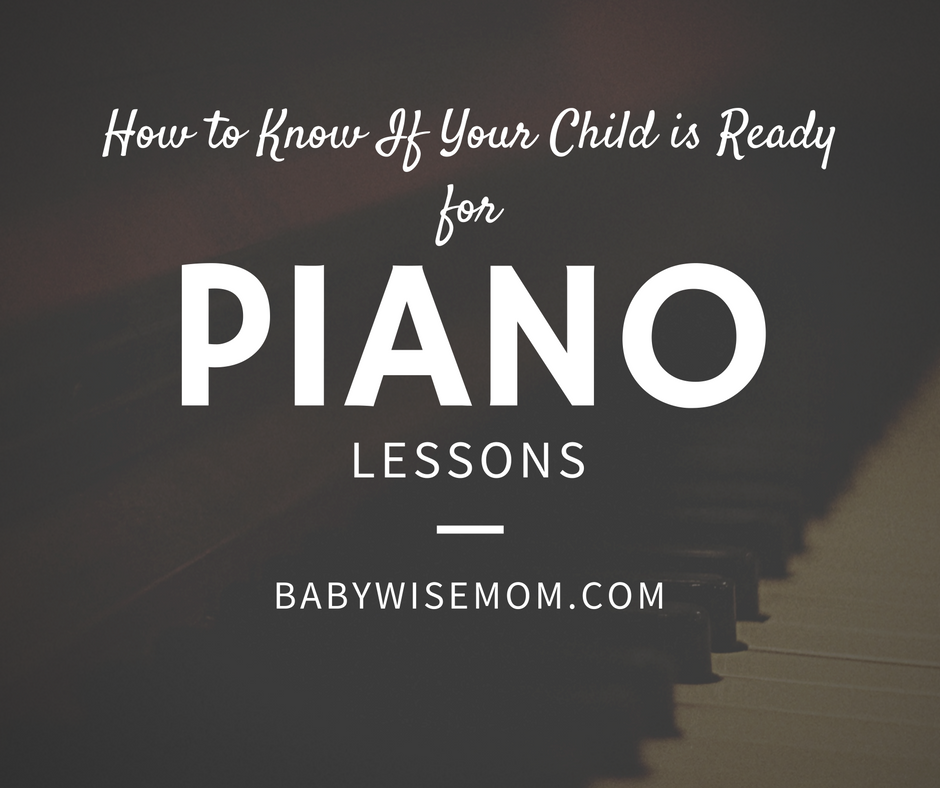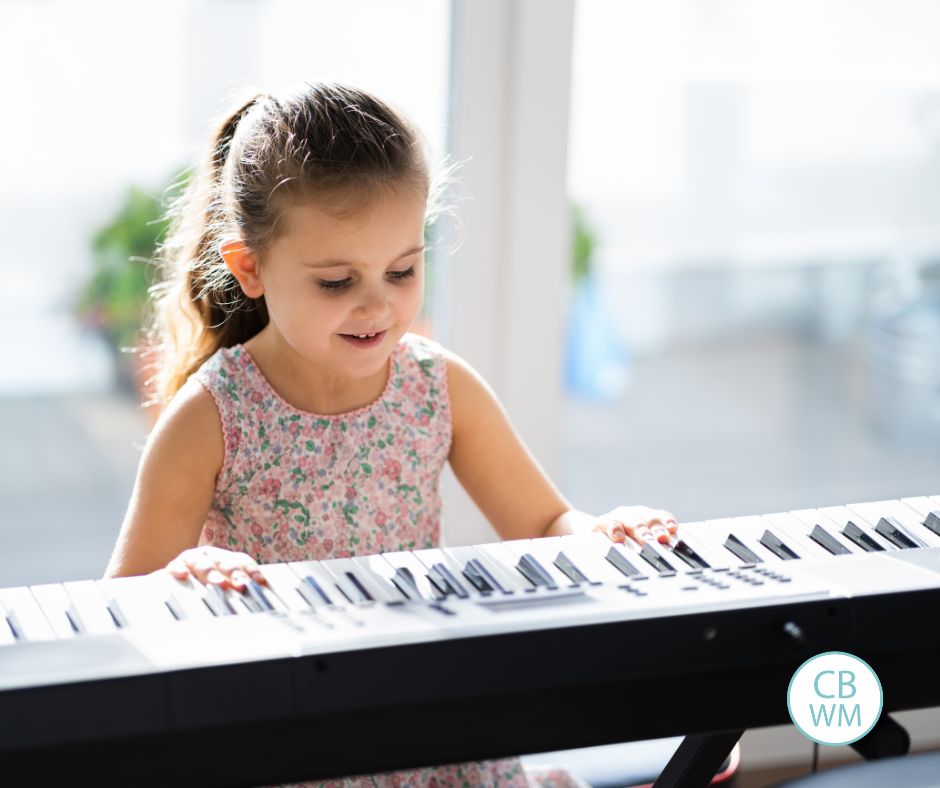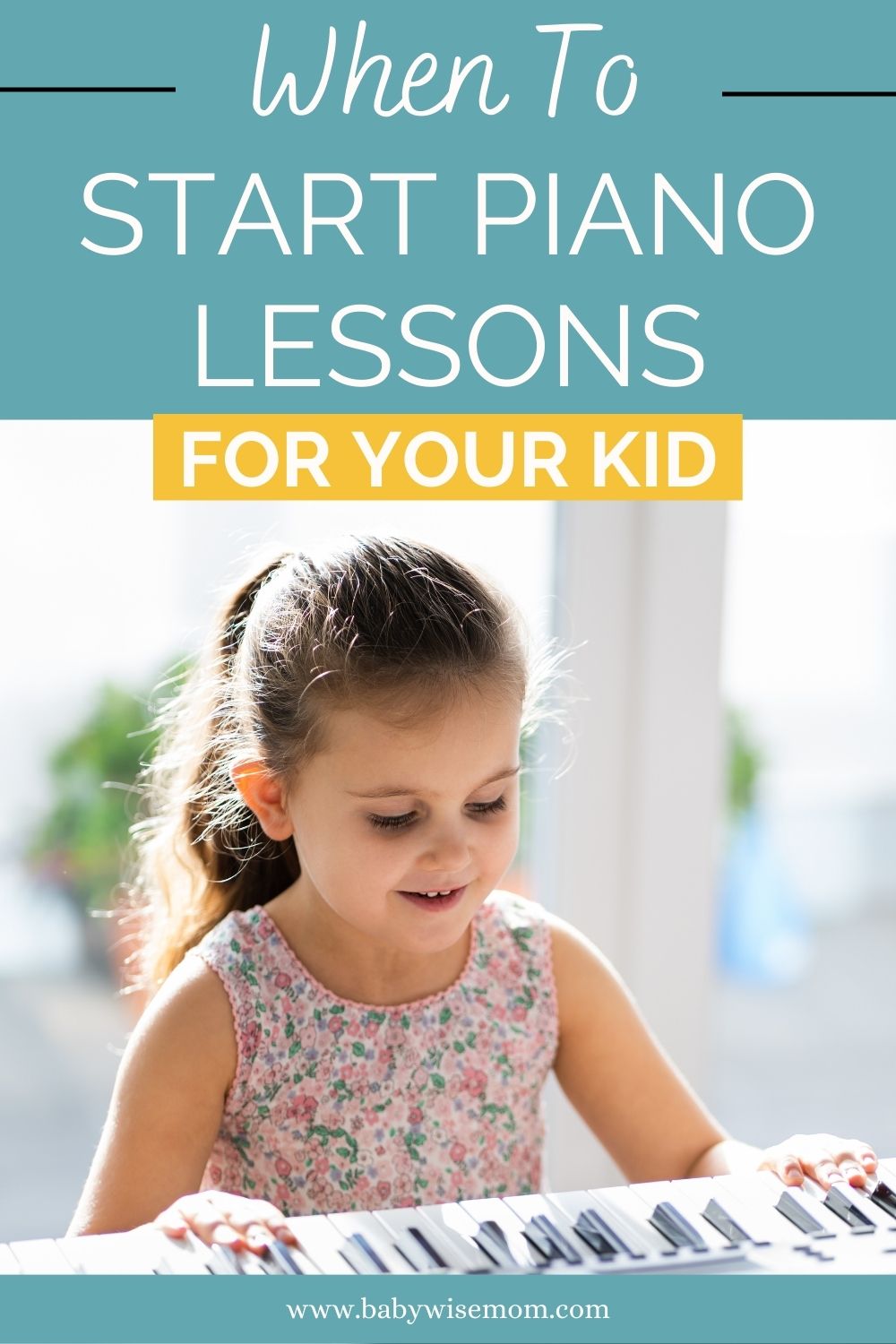Things to look for when deciding if your child is ready for piano lessons yet. Considerations include age, literacy, desire, and parental readiness and involvement.

My name is Claire and I blog at My Devising. I’m so excited to be a new member of the Babywise Friendly Blog Network.
Just to give you a quick introduction – I’m a stay at home mom and have one son who is 21 months old. I also teach private piano lessons on the side. Because Valerie also recognizes the value in music education, we figured that would be a great topic of discussion for today.
Often, I get asked what age a child should start taking piano lessons. Age certainly has a lot to do with it, but there are some other things to factor in as well. So, I have a list of 4 things that I believe help a student become successful right from the start with piano lessons.
Post Contents
AGE
Truly, age is not going to determine whether or not your child will become a master pianist. I’ve seen some 6 year old kids flourish and some 6 year old kids that are totally uninterested and far too squirmy. But I’ve seen the same with 9 year olds. So, like I say, age is only part of it. I started lessons when I was 7 and, as a general rule, I think that’s a great age to start. That would be my recommendation.

ABILITY TO READ
This is huge. (To be clear, I’m not talking about “reading music.” I’m talking about “reading,” as in “reading books.”) Sure, there are method books out there specifically designed for students who can’t read but want to learn how to play the piano. It’s definitely possible. But in my experience, sometimes it’s better use of money and time to just wait the additional year or so it takes for your child to begin reading. I’ve seen that my piano students are able to learn more and at a faster pace when they are already reading. The ability to read is also a plus for the parents. Piano books have instructions in them and when you have a child that can read, they are able to function on their own a bit more for practice time.
A DESIRE
No, your child will probably not wake up everyday excited to practice, but there needs to be some sort of drive behind why they’re learning to play the piano. Maybe they saw an older girl play the piano and sing, and they hope to be just like her. Maybe they went to a concert, saw a guy play the piano, and got inspired. Or maybe they just love spending time at the piano each day. Whatever it is, you grab onto it. There may be seasons where they lose this passion and beg for you to let them quit, but you press forward. You trust that thing deep down in them that you saw at one point. I pleaded for my mom to let me quit piano more times that I can count. I ended up loving it and majoring in Music Education – Piano Emphasis in college. Now I enjoy playing in my church, writing songs, performing with my band, and teaching piano lessons. So just because your child is crying tears of agony because they don’t want to practice doesn’t mean that desire isn’t still there. Sometimes you just need to help bring it out of them.
AFFIRMATION
So much of a child’s success in piano lies in this very thing – parental affirmation. A parent’s desire to be involved and keep with it is just as important as the child’s. You need to be ready to stand firm by not letting them quit too easily or get swamped by other activities. Parents must realize the lifelong purpose behind piano lessons so you can know in your own mind that it’s worth it and be able to convey that to your children. They need your encouragement.
Along with various piano teaching methods, there are different teachers with different teaching styles. For my personality and the way I prefer to teach, these are the things I think make piano lessons successful for a child.
As far as other instruments are concerned, these things are good to consider before starting any kind of music lessons. However, different instruments do require different things from children. In general, piano is a great starting point no matter what instrument your child hopes to focus on. It provides such a wonderful base of music education.
I want to end with this: I think ALL children can benefit from piano lessons. I don’t think you need to exhibit special skills and abilities in order to do well with it. I’ve seen children push through apathetic parents or rise above age level expectations. The piano can be for everyone. Aside from actually learning to play the piano, the life skills I’ve learned from piano lessons are innumerable. (Another post for another day!) You and your child will not regret it!
Related Posts
- Choose the Right Time of Day for Activities and Lessons
- What Age Should Children Start Activities?
- Scheduling Homework Time/Piano Practice Time/etc.
- Avoiding Activity Overload with Your Kids

